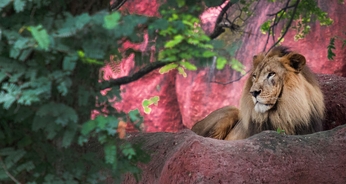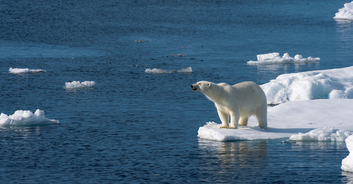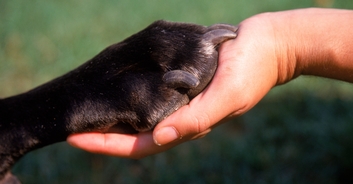The first-ever sighting of a newborn great white shark in the wild has been revealed.
Wildlife filmmaker Carlos Gauna and Phillip Sternes, a doctoral student in the department of biology at the University of California Riverside, took to Instagram to share that they had spotted a 1.5-meter-long, all-white predator swimming off the coast of Carpinteria, California.
It's always been a mystery to scientists where great white sharks give birth, however, on July 9, 2023, luck smiled on the two filmmakers who were scanning the area for sharks.
"On this particular day, one such large shark was visible. It disappeared just beyond the visual depths following some erratic yet unexpected movements. Shortly thereafter, this small, completely white-covered white shark appeared. It was unlike anything I’ve seen before," Gauna penned in the caption.
Check out the newborn great white shark below:The filmmaker shared that the predator's pale coloring and size were unique as adult great white sharks are gray on top and white underneath. "The key is in the shape and size of the fins. Specifically the dorsal fin. It’s unmistakable that this is a very young white shark," he wrote.
Gauna has observed the coast of Santa Barbara for years and has most likely captured pregnant great white sharks. But, while the area is seen as a possible birthing site, this is the first time there is evidence of a newborn. "This could very well be the youngest ever recorded alive," he added in his Instagram post.
The pair documented their observations in a study titled "Novel aerial observations of a possible newborn white shark (Carcharodon carcharias) in Southern California" which was published on Monday (January 29).
"Given that white sharks produce uterine milk, it is within the realm of possibility that either this fluid or another fluid could have adhered to the shark right before birth," the authors noted in the paper.
If their examination is accurate, it’s the first time that a newborn great white shark has been observed in the wild: "Where white sharks give birth is one of the holy grails of shark science. No one has ever been able to pinpoint where they are born, nor has anyone seen a newborn baby shark alive," Gauna said, as cited by CNN.
"There have been dead white sharks found inside deceased pregnant mothers. But nothing like this," he concluded.

Great white sharks have a slow reproduction rate, with a female white shark taking decades to reach breeding age and giving birth only once about every 3 years, according to the Oceana.
National Oceanic and Atmospheric Administration (NOAA) reported that since the laws were first introduced in the 1990s, the predator's population has been increasing in the Northwest Atlantic and could no longer be at risk of becoming endangered in US waters.
Sternes shared some words about the newborn great white sharks, stating: "Further research is needed to confirm these waters are indeed a great white breeding ground," per Daily Mail.
"But if it does, we would want lawmakers to step in and protect these waters to help white sharks keep thriving," he added.










